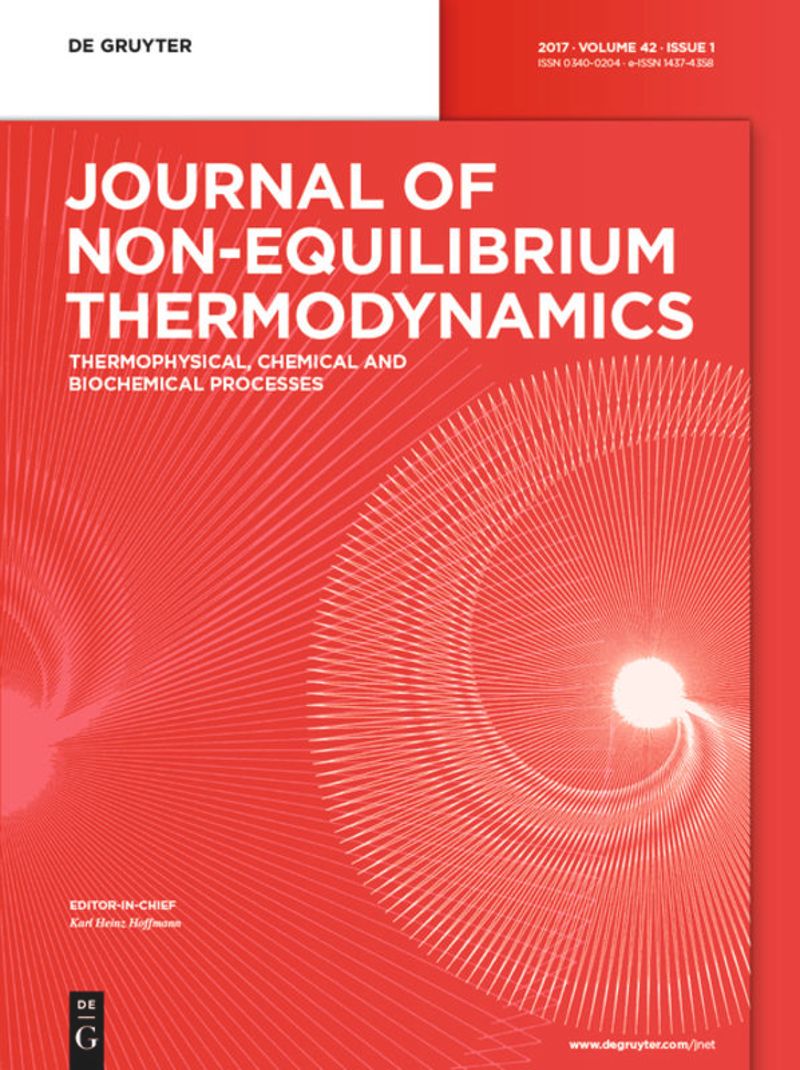Heat transfer within nonequilibrium dense aluminum heated by a heavy ion beam
IF 4.2
3区 工程技术
Q1 MECHANICS
引用次数: 0
Abstract
Energetic laser-accelerated ions can heat a small solid-density sample homogeneously to temperatures over 10,000 K in less than a nanosecond. During this brief heating time, the electron temperature of the sample rises first, and then the ion temperature increases owing to the heat transfer between the hot electrons and cold ions. Since energy deposition from the incident heavy ion beam continues concurrently with the electron-ion relaxation process within the heated sample, the electron and ion temperatures do not reach equilibrium until the end of the heating. Here we calculate the temperature evolutions of electrons and ions within a dense aluminum sample heated by a laser-accelerated gold ions using the two-temperature model. For these calculations, we use the published stopping power data, known electron-ion coupling factors, and the SESAME equation-of-state (EOS) table for aluminum. For the first time, we investigate the electron and ion temperature distributions within the warm dense aluminum sample and the heating uniformity throughout the entire heating period. We anticipate that knowledge of the temperature evolution during heating will allow for the study of the stopping power, thermal conductivity, EOS, and opacity of warm dense matter heated by an energetic heavy ion beam.被重离子束加热的非平衡致密铝内部的热传递
高能激光加速离子可在不到一纳秒的时间内将固体密度较小的样品均匀加热到 10,000 K 以上的温度。在这一短暂的加热时间内,样品的电子温度首先升高,然后由于热电子和冷离子之间的热传递,离子温度也随之升高。由于入射重离子束的能量沉积与加热样品内的电子-离子弛豫过程同时进行,电子和离子温度直到加热结束时才达到平衡。在这里,我们使用双温模型计算了在激光加速金离子加热的致密铝样品中电子和离子的温度变化。在计算过程中,我们使用了已公布的停止功率数据、已知的电子-离子耦合因子以及铝的 SESAME 状态方程(EOS)表。我们首次研究了暖致密铝样品内的电子和离子温度分布以及整个加热期间的加热均匀性。我们预计,了解加热过程中的温度演变将有助于研究被高能重离子束加热的暖致密物质的停止功率、热导率、EOS 和不透明度。
本文章由计算机程序翻译,如有差异,请以英文原文为准。
求助全文
约1分钟内获得全文
求助全文
来源期刊
CiteScore
9.10
自引率
18.20%
发文量
31
审稿时长
1 months
期刊介绍:
The Journal of Non-Equilibrium Thermodynamics serves as an international publication organ for new ideas, insights and results on non-equilibrium phenomena in science, engineering and related natural systems. The central aim of the journal is to provide a bridge between science and engineering and to promote scientific exchange on a) newly observed non-equilibrium phenomena, b) analytic or numeric modeling for their interpretation, c) vanguard methods to describe non-equilibrium phenomena.
Contributions should – among others – present novel approaches to analyzing, modeling and optimizing processes of engineering relevance such as transport processes of mass, momentum and energy, separation of fluid phases, reproduction of living cells, or energy conversion. The journal is particularly interested in contributions which add to the basic understanding of non-equilibrium phenomena in science and engineering, with systems of interest ranging from the macro- to the nano-level.
The Journal of Non-Equilibrium Thermodynamics has recently expanded its scope to place new emphasis on theoretical and experimental investigations of non-equilibrium phenomena in thermophysical, chemical, biochemical and abstract model systems of engineering relevance. We are therefore pleased to invite submissions which present newly observed non-equilibrium phenomena, analytic or fuzzy models for their interpretation, or new methods for their description.

 求助内容:
求助内容: 应助结果提醒方式:
应助结果提醒方式:


